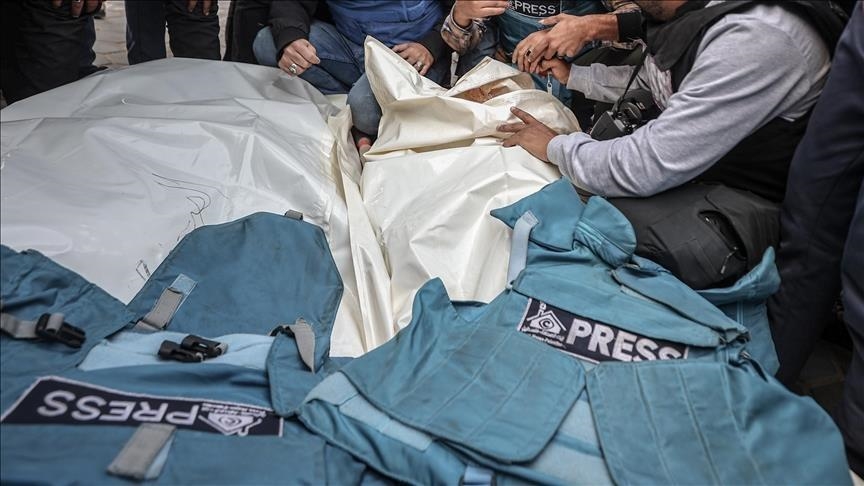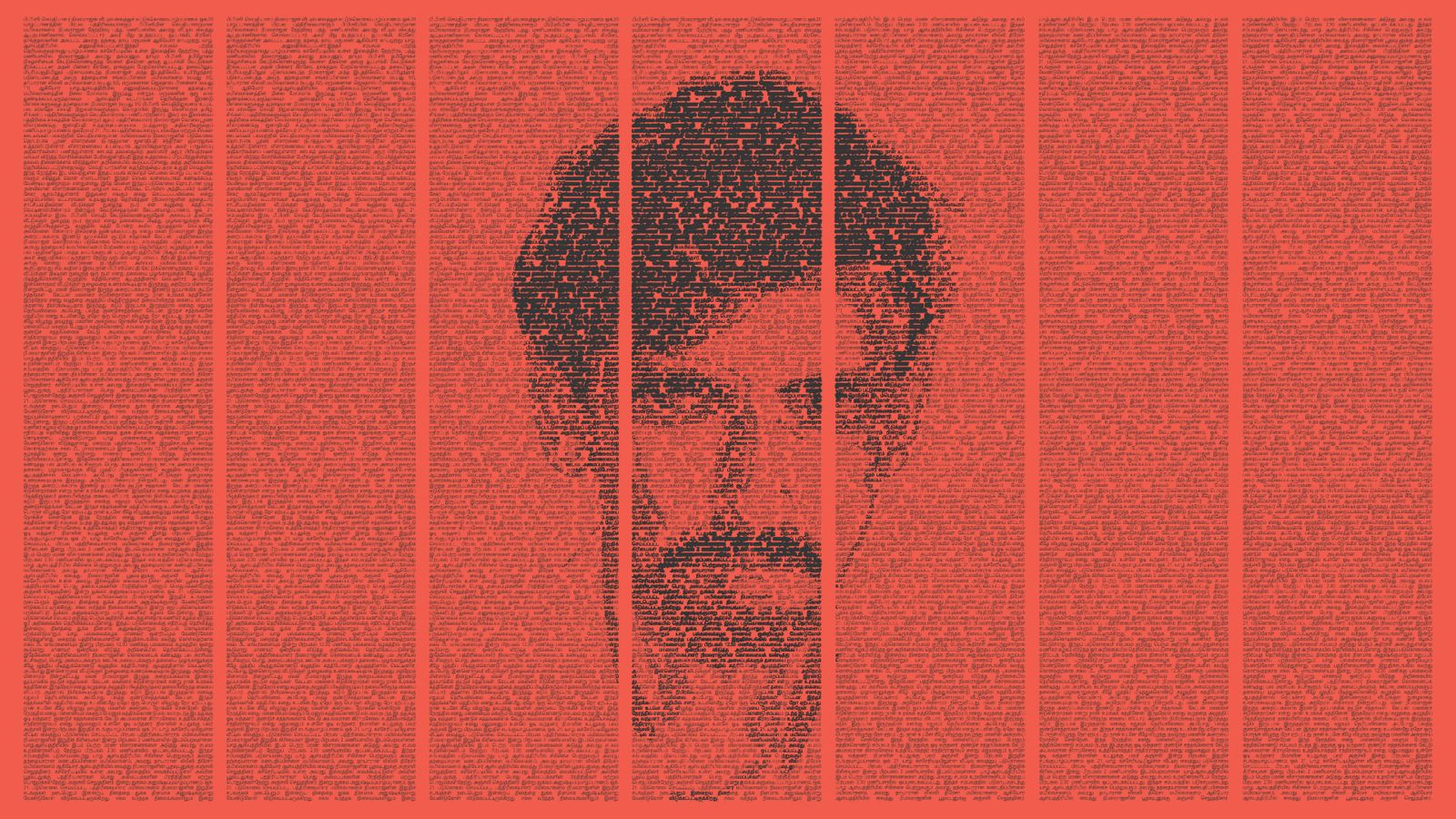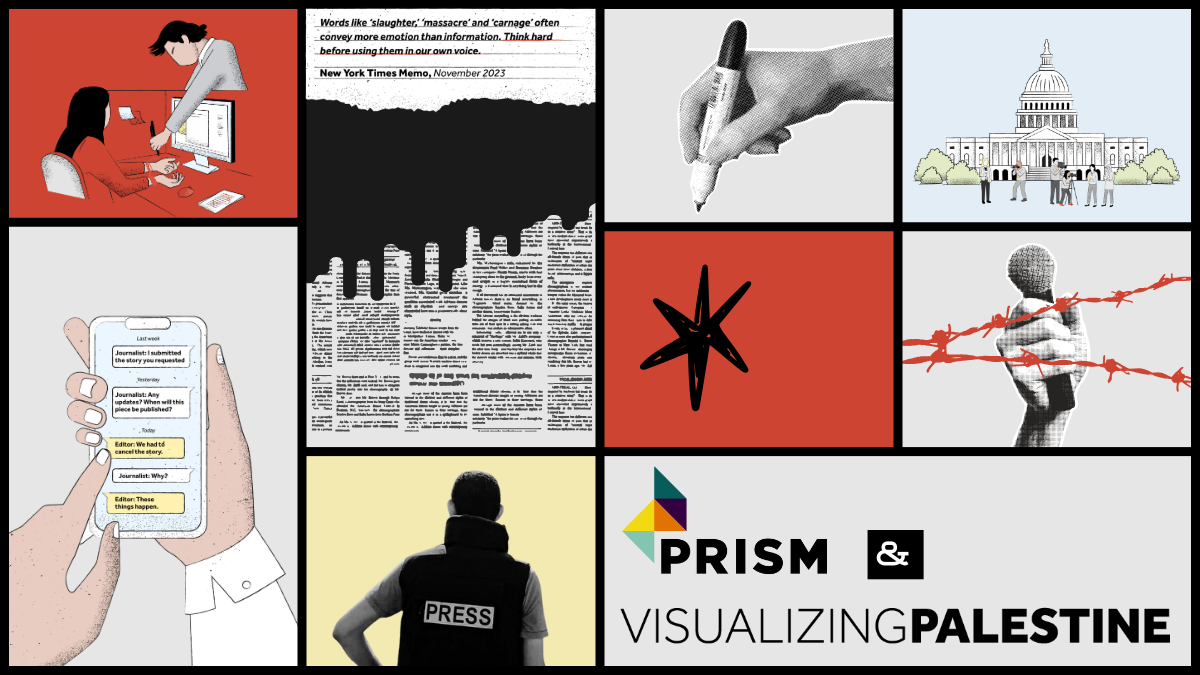
October 2023: A Bloody Month for Palestinian Media – 39 Journalists Killed, Media Freedoms Crushed
September 8, 2025
Text-Book Failures and Enduring Impunity: The Killing of Sri Lankan Journalist Mylvaganam Nimalarajan
September 10, 2025Prism’s months-long investigation, in collaboration with Visualizing Palestine, reveals systemic suppression of Palestinian voices in U.S. newsrooms, intensified since October 7, 2023. Through testimonies from nearly a dozen journalists—Palestinian, Arab, or Muslim—the report documents editorial pushback, harassment campaigns, and structural bias that prevent fair coverage of Israel’s genocide in Gaza.
One central voice is “Nadia,” a pseudonym for a reporter who quit her newsroom after years of double standards. She described her editors killing stories on Palestinian culture and activism, or demanding quotes be softened to avoid offending pro-Israel audiences. After October 7, her newsroom barred her from reporting on Palestine entirely, while white or Israeli colleagues led coverage. For Nadia, watching a genocide unfold without being able to write was intolerable.
Other reporters shared similar accounts. Many said newsroom leaders discouraged or outright blocked Palestinian stories, refused to put restrictions in writing, and assumed Arab or Muslim journalists were “biased.” Meanwhile, mainstream coverage often relied on journalists with Israeli military ties, reinforcing narratives favorable to Israel. Writers Against the War on Gaza highlighted these connections in a dossier on The New York Times, alleging conflicts of interest and propagandistic reporting.
The investigation details how pro-Israel lobby groups such as CAMERA and Canary Mission aggressively pressure editors, flooding them with complaints, legal threats, and sponsorship withdrawals. Journalists described editorial meetings as combative, with younger staff pushing for balance while leadership clung to pro-Israel framing.
The bias extended even to progressive or advocacy-oriented outlets. At More Perfect Union, reporters said management refused to cover Gaza or ceasefire calls, despite covering labor movements elsewhere. Staffers who resisted were told that refusing assignments would threaten their jobs. Similarly, Palestinian freelancers like photojournalist Eman Mohammed reported being dropped or sidelined by U.S. outlets, including NPR and The Wall Street Journal, after October 7.
This climate of censorship is reinforced by retaliation. The National Writers Union’s 2024 report “Red Lines” documented over 100 U.S. media workers punished for perceived pro-Palestine sympathies—through terminations, cancelled assignments, harassment, and award rescissions.
Media critics argue that U.S. journalism, rather than offering a free press, has become entangled with state narratives, manufacturing consent for war. As Prism concludes, journalists face a moral choice: whether to build careers in institutions complicit in silencing Palestinian suffering, or to seek new platforms for truth.
Reference –
‘I’m so dehumanized’: Journalists say U.S. newsrooms treat Palestine with fear and contempt

